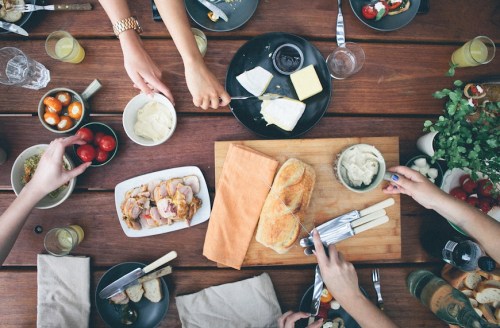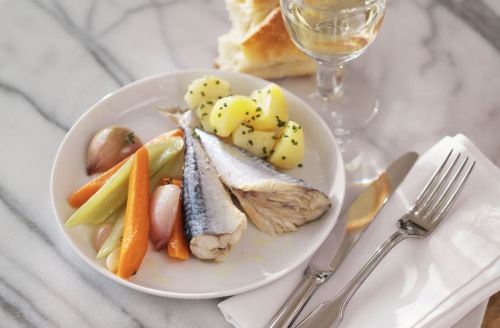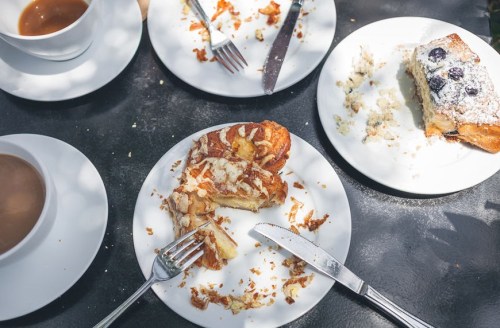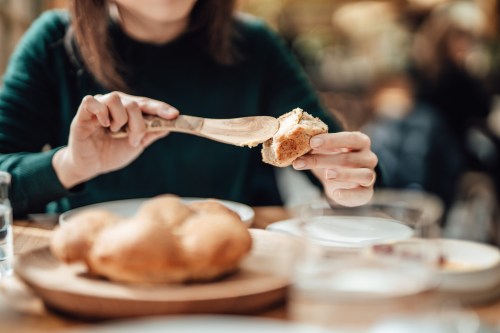This buzzy eating plan will seriously boost your brain—and it allows carbs *and* dairy
Everything you need to know about the Dutch diet, including its brain-health benefits and how to follow it.

If diets were given yearbook superlatives, the keto diet might win “most popular,” but the Mediterranean diet would rank first for “best all around.” The fish-, olive oil-, and healthy fat-centric diet has long been doctors’ go-to rec, praised on a regular basis for being especially great for your heart and your brain. But recently, scientific studies have been heralding a different regional diet as the best brain bet: the Dutch diet.
On the surface, the Dutch and Mediterranean diets seem similar, both favoring veggies, fruit, fish, and nuts. But here’s the big difference: Pastries and dairy have prominent places on the table in the Netherlands. When a team of researchers at Erasmus University Medical Center in Rotterdam studied people who ate this way, they found that their brains were legitimately bigger and they had “better cognitive abilities” than people who didn’t follow the Dutch diet. Another scientific study found it to be better than a traditional Western diet on both psychological and physiological levels. So what does it take to go Dutch?
Here, researchers explain how to follow the Dutch diet and why it’s so great for your brain.

Think “hero diet,” not “hero food”
According to Pauline Croll, one of the researchers on the Erasmus University team, there’s not one amazing food for your brain—not even heralded “brain foods” like salmon or nuts. “A lot of research has been done assessing, for example, the relation between fish consumption and brain health, but our study focuses on overall diet quality rather than individual brain health,” she says. The big point she wants to make: Everything you eat works together—for or against you.
Croll also says that eating a plate full of fish and veggies won’t make up for eating sugar and processed food on the reg. “If someone eats a lot of vegetables, the beneficial health benefits will disappear when they also eat a lot of unhealthy saturated fats,” she says. “Instead of having one ‘hero’ food for brain health, I’d recommend a hero diet.”
What’s that look like? Essentially, you should be loading up on vegetables, fruit, dairy, whole grains, legumes, nuts, fish, and unsaturated fats—and limiting saturated fats, red and processed meat, sugar-containing beverages, alcohol, and salt, Croll says. (You saw the sugar part coming, right?)

Choose “slow foods” over fast calories
Janet van den Boer, a researcher in the division of human nutrition at Wageningen University in the Netherlands, says that what makes the Dutch diet so beneficial is that it’s centered around slow foods—those that are low-calorie, yet keep you full for a long time, like yogurt, cottage cheese, legumes, fruits, and (duh) vegetables. “Americans tend to eat a lot of ‘fast calories,’ which are consumed quickly and have a lot of calories,” she says. The basic principle: Filling up on low-calorie, nutrient dense foods is generally better for you than eating a lot of high-calorie, processed foods.

Don’t fear dairy or carbs
In these keto-centric times, carbs tend to get shunned, but not so in the Netherlands. “Breakfast and lunch both typically include bread,” Croll says. Dairy’s also considered part of a healthy Dutch diet, which isn’t always the prevailing opinion in the US. But it’s worth pointing out that their portions tend to be smaller than those Stateside and they snack less during the day.
Croll also points out that the Dutch lifestyle is generally more active than the typical American one. “Dutch people bike everywhere and exercise also plays a role in supporting a healthy brain,” she says.
So while the Dutch diet may be trending, the principles that make it a healthy eating plan are nothing new. It still comes down to eating real foods, filling up on veggies and healthy fats, and keeping sugar intake to a minimum. All of which is basically a nutritional (ahem) no-brainer.
If you can’t keep track of all the different eating plans out there—and how they’re different from each other—check out this A to Z diet guide. Plus, six other ways you can give your brain a boost.










